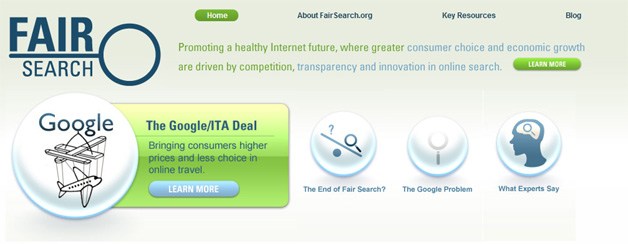The DoJ has been scrutinizing Google’s proposed acquisition of ad optimization firm AdMeld for over a month, and has now requested further information from Google.
Google has put out a response to this via its Public Policy blog, which basically boils down to: this is pretty standard, we don’t expect any problems, and here are some people that don’t think we’re being anticompetitive.
VP of Display Advertising Neal Mohan wrote, “We’ve been discussing this deal with the Department of Justice, who are obliged to review the transaction because of its purchase price. As they do for many acquisitions, they have sent us a ‘second request’, which means that they are asking for more information in order to complete their review of this particular acquisition. This doesn’t surprise us, as today’s display advertising industry is very new and highly complex. But we’ll work to enable this review to be concluded as quickly as possible – display advertising is highly competitive and fast moving, and we don’t want our efforts to bring better services to our clients to be delayed.”
Mohan also attached a pdf of some quotes from various people, including:
- This one from PubMatic CEO Rajeev Goel: “I see this development as very positive for PubMatic for a variety of reasons.”
- This one from Cadreon CEO Brendan Moorcroft: “Admeld has developed a comprehensive suite of services and established strong relationships with premier media companies, allowing them to provision premium inventory into the biddable media environment in a meaningful way. Their offering embodies the perfect complement to Google’s DoubleClick Ad Exchange, which has created an efficient mechanism for advanced digital media transactions…As a result, through Google we now have even greater access to a wider and more diverse set of inventory, resulting in a richer array of opportunities for digital campaigns to take advantage of. This acquisition is great news for the industry and is proof that our space will continue to have aggressive, compound growth for the next several years.”
- And this one from VivaKi Nerve Center Kurt Unkel: “From a publisher’s perspective, I have to believe this will address several of the challenges related to transparency and tighter inventory controls that were frustrating to AdX and [DoubleClick for Publishers] publishers. And this in turn should drive up adoption of the solution amongst Publishers who to date have held back. Kudos to Google for listening to their customers.”
Meanwhile, FairSearch, the organization most hellbent on seeing Google feel the wrath of antitrust regulation, has been blasting the company through things like a recently launched “Searchville” site, and a report accusing the company of misrepresenting its positive impact on the economy.
Google says until the DoJ finishes its review of AdMeld, it will be business as usual. The DoJ did approve the ITA Software acquisition – the one that FairSearch was formed to prevent in the first place.










 That doesn’t mean Google can in any way brush off the complaint, though. Remember that South Korean police actually
That doesn’t mean Google can in any way brush off the complaint, though. Remember that South Korean police actually 


 Microsoft is concerned about search box exclusivity terms, as well, and finally, there was an accusation about the cost of placement for competitors’ advertisements.
Microsoft is concerned about search box exclusivity terms, as well, and finally, there was an accusation about the cost of placement for competitors’ advertisements. This is in reference to when RealNetworks launched service that enabled its music to be played through iTunes and on iPods, before Apple quickly updated its software to prevent that from happening.
This is in reference to when RealNetworks launched service that enabled its music to be played through iTunes and on iPods, before Apple quickly updated its software to prevent that from happening.


 "Right now, one the most audible reactions I’m hearing from publishers is: what does this mean for the consumer? The concern is that Apple’s latest subscription policy limits one of the major needs that all publishers look to address – seamlessly offering their content on whatever platform the consumer wants to access it on," she told us.
"Right now, one the most audible reactions I’m hearing from publishers is: what does this mean for the consumer? The concern is that Apple’s latest subscription policy limits one of the major needs that all publishers look to address – seamlessly offering their content on whatever platform the consumer wants to access it on," she told us.